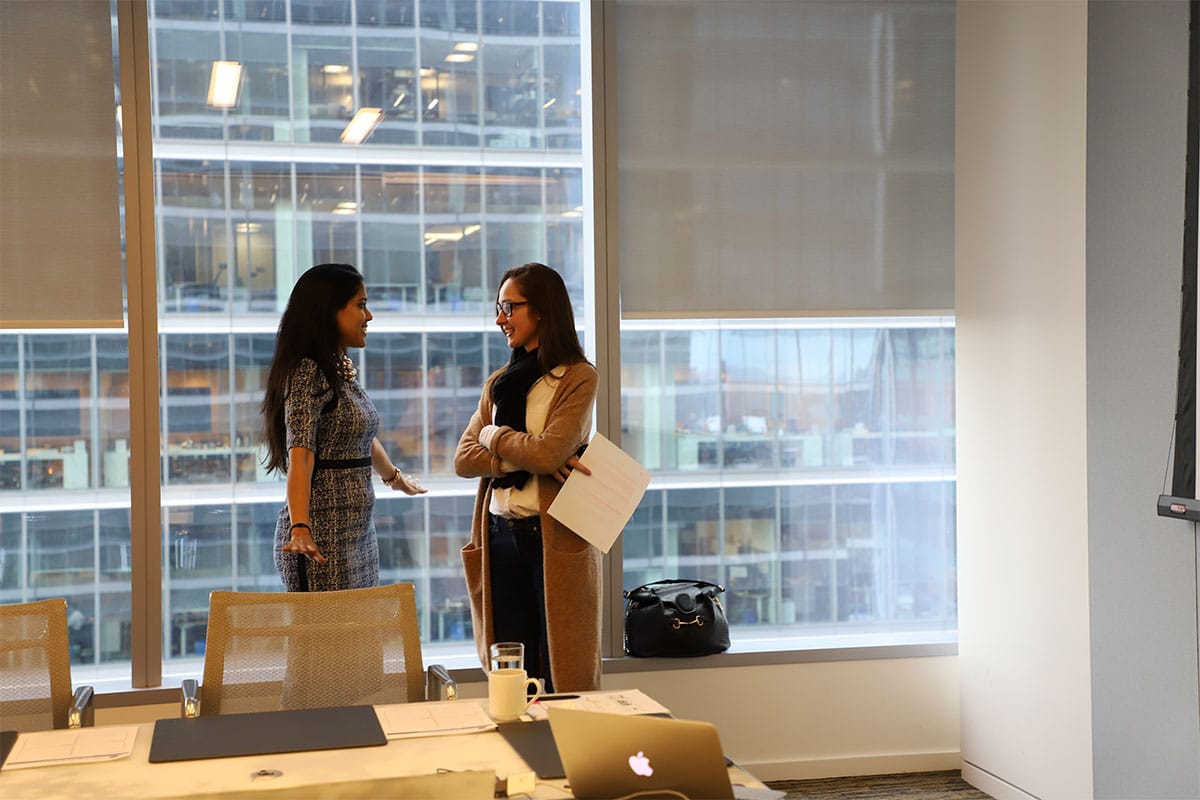
The transition back to in-person work or to a hybrid workplace has been on our minds for some time at bci. We were working with clients on this in the fall, but of course, had to pause due to Omicron, and we’re now back on this again.
Many organizations have begun planning again for various forms of in-person work this spring, but I continue hearing the same concern coming up during client conversations: “We’re learning that one of the main reasons many team members don’t want to go back into the office is because they feel they can’t be as authentic in-person.”
Whether it’s introverts who are dreading having to “be on” as extroverts all day, women feeling the pressure with juggling child care responsibilities or to wear more makeup in order to seem “polished” or People of Color anticipating heightened racial/ethnocultural micro-inequities, there are many ways in which the fear of conforming are playing into the anxiety related to returning to forms of in-person working.
As someone who is a passionate advocate for authenticity (and even wrote a book about it!), I fully understand this concern. I know firsthand from my work and research that authenticity is the fundamental ingredient for inclusion in the workplace. Authenticity and inclusion go hand in hand!
While the pandemic has brought with it many challenges, one of the blessings to come from the huge shift to working remotely was that it opened the door to authenticity for so many people. Not only did we see our leaders, colleagues and even renowned business people be more authentic about their lives and life challenges, including their journeys with diminished mental health, we became more comfortable than ever with talking about our challenges and being ok with not being ok.
Working remotely has helped to remove the pressure so many people feel to hide parts of themselves or to perform at work — plus it’s demolished the illusion that we can somehow “do it all”. But as the world starts to open back up again, this pressure to once again behave as though everything’s perfect, when it isn’t, can feel terrifying and like a step backwards.
For some, this shift and the thought of returning to in-person work brings mental health-related concerns such as fear, uncertainty, stress and anxiety. This can be especially heightened for people with lived experience of mental health challenges, professionals of color, women, LGBTQ+ professionals and other groups who faced heightened barriers to bringing their Authentic Selves to work before the pandemic.
In order to create a safe, supportive and meaningful transition back to in-person work, leaders must be conscious of this and focus on cultivating authenticity, belonging and psychological safety as much as possible. This starts with shifting focus to authentic leadership and digging deep on ensuring that you are leading inclusively in hybrid working environments.
It’s important to acknowledge that the pandemic was experienced differently by each person and that the return to in-person work may not be a source of excitement for everyone. But by leading with authenticity during this time, you can ensure that your team feels supported and prepared throughout this transition.
Sign up for bci’s mailing list to get the latest diversity, equity and inclusion insights right to your inbox every month.
The bci team primarily works from lands that are part of the Dish With One Spoon Territory, a treaty between the Anishinaabe, Mississaugas, and Haudenosaunee that brought these communities together to share, serve, and protect these lands.
bci is deeply committed to honoring the spirit of this treaty, and we recognize our privilege in enjoying the benefits of these lands, which supports all that we do. We’re passionately focused on undertaking our work in alignment with the values of Truth and Reconciliation, and we actively seek to decolonize societal and workplace systems, as well as our individual behaviors.
Komal is bci’s Senior DEI Consultant and Mental Health Expert-in-Residence and an accomplished DEI facilitator, coach, and strategist. Komal has over 20 years of experience in providing strategic and advisory guidance and program development across a range of sectors, with a particular concentration in mental health and racial inclusion. Komal is also the founder of Insayva Inc., a social enterprise focused on providing accessible DEI and health equity support to charities and non-profit organizations.
Komal has extensive experience in creating and delivering programming in a range of leadership and DEI areas, including mental health inclusion, psychological safety, empathy, relationship repair, allyship, and cultural competence. She is passionate about driving transformational change in workplaces and has worked closely with bci clients – corporations, professional service firms, health care providers, and educational institutions – to embed cultures of inclusion within their organizations.
Komal has provided one-on-one inclusion coaching to hundreds of senior leaders and brings a unique approach that is informed by her background as a therapist. She is able to expertly handle sensitive conversations and situations and works with leaders to develop the knowledge and skills necessary to advance racial/ethnocultural, gender, and mental health-related equity across teams and organizations. Komal also offers a performance coaching program designed specifically for BIPOC leaders. This program aims to help BIPOC leaders harness their place, position, and identity to thrive in the workplace and beyond. Komal is a qualified administrator of the Intercultural Development Inventory (IDI).
As bci’s Mental Health Expert-in-Residence, Komal offers tremendous expertise around workplace mental health. As a doctoral trained mental health clinician, certified health executive, and registered social worker, Komal has assisted organizations looking to advance employee mental health inclusion and well-being through offering programming on inclusive dialogue, anti-stigma, burnout prevention, psychological safety, resilience, and self-care. Komal is committed to advancing mental health and wellness across the life course; she currently serves on the board of the Alzheimer’s Society of Ontario and previously served on the boards of Children’s Mental Health Ontario and the YMCA of Greater Toronto.
When Komal is not working, you’ll find her painting, cooking, or snuggling with her cats.